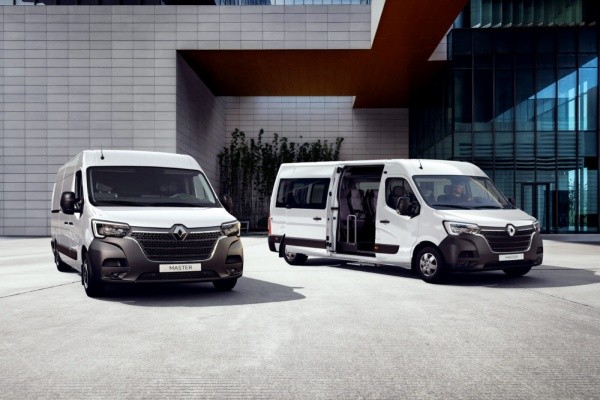Groupe Renault has decided to enter the global fuel cell electric vehicle (FCEV) market starting with commercial vehicle rather than passenger car.
To develop its own FCEV, it has decided to establish a joint venture with “Plug Power” that recently received an investment from SK Group and work on R&D together. SK Holdings and SK E&S acquired a 9.9% of Plug Power’s stake by investing $1.5 billion on January 7 and have become Plug Power’s largest shareholders.
Groupe Renault’s goal is to secure 30% of the hydrogen fuel cell-based LCV (Light Commercial Vehicle) market in Europe. It has yet to mention anything about its plan to release passenger cars based on fuel cell. The fact that it is not easy to expand fuel cell charging infrastructures in downtowns yet is likely the reason why the group has decided to target the commercial vehicle market first rather than the market for passenger cars.
The group announced on Wednesday that it plans to establish a 50:50 joint venture with Plug Power in France sometime in the first half after going through a screening by competition authorities.
Plug Power possesses core technologies in every part of hydrogen value chain such as production, storage and transportation, and supply. In addition to hydrogen, it also makes and sells hydrogen fuel cells.
Nissan and Mitsubishi, Groupe Renault’s allies, also do not have any FCEV in their inventories. As a result, it has decided to work with Plug Power, which is a leader in hydrogen energy, rather than trying to develop FCEV technology on its own so that it can take immediate action towards increased demands for eco-friendly cars due to enforced regulations on environment by various countries.

It is expected that Plug Power’s hydrogen fuel cell lineup called “ProGen” will be used to develop the group’s FCEV. ProGen hydrogen fuel cells are made so that they are suitable for full-size vans and different sizes of commercial trucks.
Groupe Renault has decided on its van segment to be its first FCEV. Its decision is different from how its competitors such as Hyundai Motor Company and Toyota are targeting the global FCEV market with SUVs and sedans respectively. The group is expected to expand the segment towards cargo trucks.
The group’s first FCEV will be based on the platform of “Trafic” and “Master” that are part of the group’s van segment. Although both vans are based on a motor, there will not be much issue with turning them into FCEVs.
“Unlike electric vehicle platforms, it is easier to develop a hydrogen fuel cell system according to an internal combustion engine platform.” said one expert in FCEV. “Because it is hard to reduce the size and change the shape of an air compressor of a hydrogen fuel cell just like an engine cylinder, it is difficult to lay a hydrogen fuel cell thinly on the floor like a battery.”
The joint venture will set up a R&D innovation center in order to assist collaboration between the two companies in releasing FCEVs and also set up a production plant for hydrogen fuel cell stacks and systems. It will also produce and supply hydrogen fuel and launch its own charging infrastructure business by utilizing Plug Power’s hydrogen fueling station construction technology.
“Through Plug Power, we plan to establish an end-to-end hydrogen fuel cell value chain and provide various solutions such as FCEV, hydrogen fueling station, and hydrogen delivery.” said CEO Luca de Meo of Groupe Renault. “Our goal is to become a leader in the European market for light commercial vehicles based on hydrogen fuel cell.”
Staff Reporter Park, Jinhyung | jin@etnews.com
